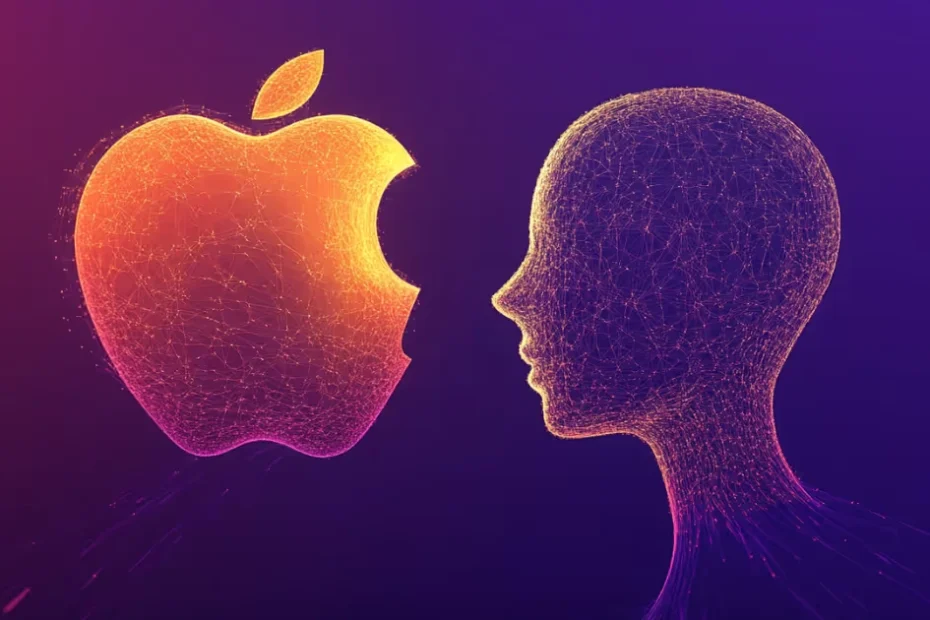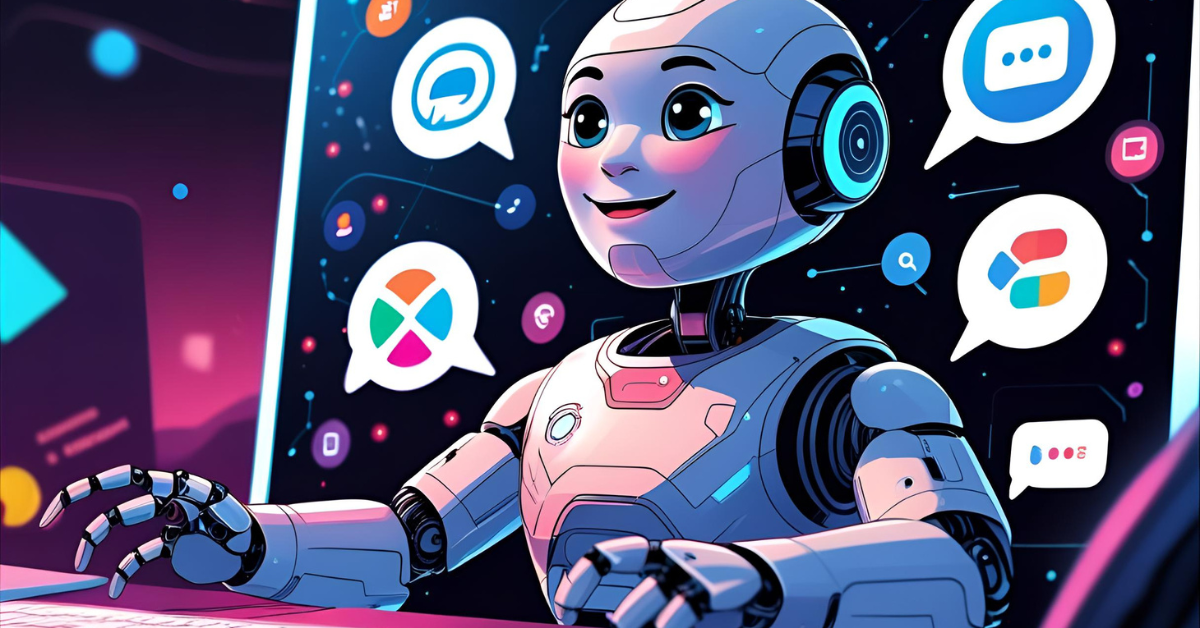Table of Contents
Why this comparison matters
Apple Anthropic Ai reasoning showdown isn’t just a catchy phrase; it captures a real split in strategy. Apple is productizing on-device and private-cloud AI to “take action across apps” with strong data protections. Anthropic is pushing frontier reasoning with Claude, aiming for deeper analysis, tool use, and iterative problem-solving. Your choice affects latency, privacy posture, and the kinds of tasks you can automate—from inbox triage to agentic coding. Apple’s framing centers on user safety and integration; Anthropic’s centers on intelligence and reliability of thought. Apple’s pitch is “AI that knows you, privately.” Anthropic’s pitch is “AI that thinks more clearly.”
What Apple means by “reasoning” (and where it runs)
Apple introduced Apple Intelligence to “understand and create language and images, take action across apps, and draw from personal context,” with computation that can shift between device and Apple-controlled Private Cloud Compute running on Apple silicon servers. The privacy promise: decisions about when to escalate off-device are transparent and verifiable, while personal context powers on-device usefulness. This model is less about verbose chain-of-thought and more about doing—summarize, rewrite, prioritize, then execute the next action (send, save, schedule).
Short version for our apple-anthropic-ai-reasoning-showdown: Apple’s reasoning is action-oriented, privacy-anchored, and tuned for everyday productivity inside the Apple ecosystem.
What Anthropic means by “reasoning” (and how it scales)
Anthropic’s Claude 3.5 Sonnet emphasizes stepwise problem solving, self-correction, and tool use. It’s designed to iterate on hard tasks, re-evaluate approaches, and improve answers under constraints. The model family focuses on “more accurate, more reliable” reasoning, with strong results on evaluations and improved agentic coding and tool-use performance versus prior models. In practical terms, Claude often shines when you need a careful chain of analysis, a multi-turn plan, or code that calls external tools and checks its own work.
Short version for the apple-anthropic-ai-reasoning-showdown: Claude’s reasoning is analytic, iterative, and benchmark-driven, ideal for research, coding, and structured decision support.
Head-to-head: reasoned outputs, latency, privacy, and cost
Feature Comparison (Reasoning Core)
| Dimension | Apple Intelligence | Anthropic Claude 3.5 Sonnet |
|---|---|---|
| Reasoning style | Action-centric; summarize, prioritize, “take action across apps” | Analytic; multi-step planning, self-correction, tool use |
| Where it runs | On-device + Private Cloud Compute on Apple silicon | Cloud-first (with strong tool-use/agent patterns) |
| Latency profile | Excellent on-device for short tasks; predictable for Apple apps | Strong for complex queries; agentic workflows may add overhead |
| Privacy posture | Privacy by design; off-device calls via PCC with verification | Enterprise controls depend on deployment; excels in model capability |
| Output format | Concise, contextual, task-driven | Detailed, transparent, often with explicit reasoning |
| Best fit | Personal productivity, mail/messages triage, safe actions | Research, analysis, coding, complex decision support |
Apple’s documentation highlights PCC’s verifiable privacy boundary and Apple-silicon servers; Anthropic’s notes show Claude’s step-through improvements and agentic tool-use performance. This is the crux of our apple-anthropic-ai-reasoning-showdown: Apple optimizes “trusted actions,” Anthropic optimizes “trustworthy thoughts.”
Real-world workflows: who wins, where, and why
Inbox triage & calendar ops. Apple’s ability to interpret your personal context—local files, messages, contacts—then execute (move, schedule, set follow-ups) with minimal friction is hard to beat on Apple hardware. This is where the apple-anthropic-ai-reasoning-showdown leans Apple.
Research & brief-writing. When a prompt demands multi-step synthesis (conflicting sources, constraints, and tradeoffs), Claude’s iterative style and willingness to “think out loud” frequently yields deeper analysis. That nudges the apple-anthropic-ai-reasoning-showdown toward Anthropic for knowledge work.
Agentic coding. If you’re prototyping automation or reviewing PRs, Claude’s tool use and stepwise corrections are a win—particularly on complex repos. Apple’s developer story is improving inside Xcode, but the generalized reasoning edge remains with Claude today.
Personalization vs. portability. Apple owns the “feels native” experience. Claude wins when you need the same reasoning layer across mixed stacks (Mac + Windows + Linux + cloud tools) without lock-in.
Developer experience & ecosystem gravity
Apple: If your product lives inside iOS/iPadOS/macOS, Apple Intelligence reduces the glue code between user intent and app actions. The promise: invoke safe “do this for me” chains that respect user data boundaries via Private Cloud Compute. That makes the apple-anthropic-ai-reasoning-showdown tilt Apple for integrated consumer UX.
Anthropic: If your product is a multi-tenant SaaS or you rely on notebook-to-pipeline workflows, Claude’s stable APIs and emphasis on careful reasoning are compelling. “Computer use” and tool-calling capabilities make it easier to build agentic flows that can read, click, and verify. This often shortens time-to-value for complex internal automations.
Enterprise governance and risk
On Apple devices, governance is bolstered by default: strong sandboxing, narrow permissions, and PCC’s auditable boundary for server calls. That can simplify risk assessments and speed approvals for customer-facing features. With Anthropic, enterprises get model-level controls and logs appropriate for research, analytics, and coding—especially where detailed reasoning evidence is valuable for audits and handoffs. Your risk office may prefer Apple for PII-heavy flows and Claude for model-explainability and analysis “paper trails.”
The 9 bold findings from this apple-anthropic-ai-reasoning-showdown
- Reasoning ≠ only chain-of-thought. Apple’s version is action reasoning—condensed, contextual, and executable inside apps. Anthropic’s is analytic reasoning—expansive, iterative, and tool-savvy.
- Privacy posture is a differentiator. Apple’s Private Cloud Compute raises the bar for device-to-cloud AI privacy; it’s a key reason some regulated teams lean Apple first. (Apple Security Research)
- Claude still sets a high bar for deep thinking. For complex briefs, adversarial source synthesis, and self-correction, Claude often feels more “thoughtful.” (Anthropic)
- Latency is contextual. Apple is snappier for short, contextual tasks on device; Claude can be faster net-net for long analytical runs by avoiding human re-work.
- Coding is tilting Claude. Agentic coding and tool use, including improved benchmark scores, give Anthropic an execution edge for dev teams.
- Consumer UX is tilting Apple. The clean handoff from intent → action across native apps makes everyday users stick.
- Portability favors Anthropic. If you’re cross-platform or cloud-only, Claude’s neutrality plays better.
- Compliance narratives differ. Apple leads with data minimization and verifiable boundaries; Anthropic leads with explainability and stepwise outputs.
- Best answer: hybrid. Use Apple for private, personal actioning; use Claude where detailed reasoning, coding, or agentic tool use matter most.
Final take: how to choose in 2025
If your core value is private, seamless action across Apple apps, Apple Intelligence is likely your primary layer. That’s the spirit of this apple-anthropic-ai-reasoning-showdown: shorten the path from “think” to “do,” safely. If your core value is deep reasoning and agentic automation, Anthropic’s Claude 3.5 Sonnet is hard to beat—especially for research desks, data teams, and engineering orgs.
The smartest 2025 stack blends both: Apple on the edge for personal context and trusted actions; Anthropic in the cloud for advanced reasoning, tool use, and cross-platform reliability. In other words, let Apple make the everyday effortless, and let Anthropic make the exceptional possible.
Also Read – https://aiindexes.com/deepseek-r2-launch-delay/





